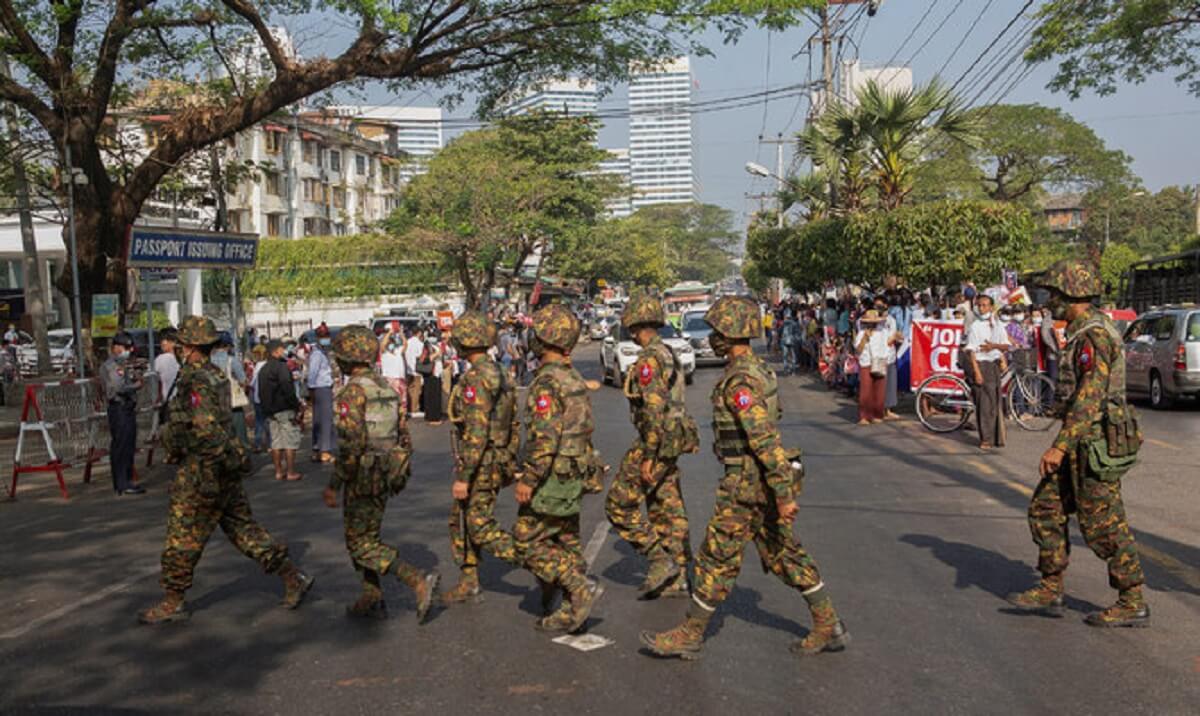Myanmar opposition’s inclusive vision deserves support
Dr. Azeem Ibrahim | 16 July 2024
The shadow of Myanmar’s tumultuous history looms large over its present. The National Unity Government, formed in the wake of the military coup in February 2021, faces the formidable challenge of steering the nation toward a more inclusive and just future.
In doing so, it is acutely aware of the mistakes made by the National League for Democracy under the leadership of Aung San Suu Kyi. One of her most glaring missteps was her defense, at the International Court of Justice, of the military’s actions against the Rohingya, a stance that severely damaged her international reputation and left her supporters disillusioned.
The unity government, a coalition of ousted politicians, ethnic leaders and activists, is determined not to repeat such errors. It has committed itself to including all ethnic minorities in any post-military political setup, in recognition of the fact that a truly democratic Myanmar must reflect the diversity of its people.
During a recent visit by senior ministers to Washington, which I had the honor of hosting, I was heartened by their dedication to this inclusive vision. Their efforts to ensure that all ethnic groups, particularly those such as the Rohingya that have faced severe persecution, are given a voice in a new Myanmar are commendable.
Suu Kyi’s defense of the military’s genocidal campaign against the Rohingya marked a tragic low point in her political career. It alienated many of her staunchest supporters and underscored a significant blind spot in her approach to governance: the failure to adequately address the plight of ethnic minorities.
When she was imprisoned following the military coup, the international outcry was notably subdued compared with the global condemnation during her previous period of house arrest. This stark contrast highlighted a shift in perceptions; the world had grown weary of defending a leader who failed to stand up for human rights when it mattered most.
The unity government’s approach stands in stark contrast to the past failings of the National League for Democracy. There is a profound understanding that the persecution of any minority group, if ignored, sets a dangerous precedent. The genocide against the Rohingya was not an isolated atrocity but part of a broader pattern of state-sanctioned violence that could, and did, extend to other groups. The same brutal tactics — including the notorious “Four Cuts” strategy, designed to cut off food supplies, funds, information and recruits — were later used against other minorities and, eventually, the civilian population at large following the coup.
The unity government’s commitment to inclusivity is not only a political strategy but a moral imperative.
This realization has galvanized the commitment of the unity government to a more inclusive and equitable Myanmar. They recognize that the road ahead is fraught with challenges but there is a clear determination to move in the right direction.
The military, having lost significant territory and facing mounting pressure on various fronts, is on the back foot. There is a palpable sense that its collapse could come sooner than anticipated, paving the way for the unity government to implement its vision for a new Myanmar.
The conversations I had with the ministers in Washington were enlightening and encouraging. They spoke passionately about the need for accountability for past wrongs, particularly the atrocities committed against the Rohingya. There is an understanding that justice must be served, not only to provide closure for the victims but also to ensure that such horrors are never repeated.
The unity government’s commitment to inclusivity is not only a political strategy but a moral imperative, which recognizes that Myanmar’s strength lies in its diversity.
Incorporating all ethnic minorities into the political framework of a new Myanmar will be essential for sustainable peace and development. The efforts of the unity government to build bridges with various ethnic groups, many of which have long felt marginalized and disenfranchised, are a crucial step toward national unity.
By fostering a sense of belonging and shared purpose, it aims to heal the deep wounds of the past and build a foundation for a more harmonious and prosperous future.
The path to a new Myanmar will undoubtedly be long and arduous, but the commitment to inclusivity and justice offers a beacon of hope. Its recognition of the mistakes of the past, particularly the failure of the National League for Democracy to protect ethnic minorities, and their resolve to do better is a significant step forward. The military’s weakening grip on power presents an unprecedented opportunity for change and the unity government must be ready to seize it.
As Myanmar stands on the brink of a new era, the lessons of the past must guide its journey toward a more inclusive and just society. The vision for a Myanmar that embraces all its people, holds the perpetrators of atrocities accountable and builds a future based on mutual respect and understanding is one that deserves the support of the world. The road ahead is uncertain but, with determination and unity, a new dawn for Myanmar is within reach.
Dr. Azeem Ibrahim is the director of special initiatives at the Newlines Institute for Strategy and Policy in Washington, DC.
This article was originally published on Arab News.
Views in this article are author’s own and do not necessarily reflect CGS policy.
